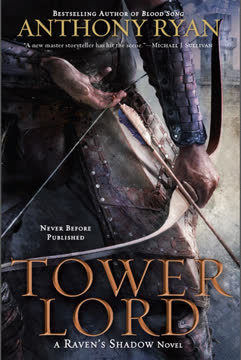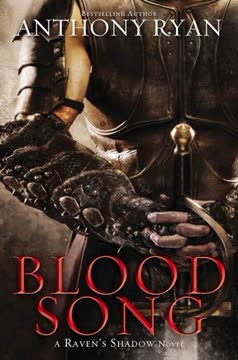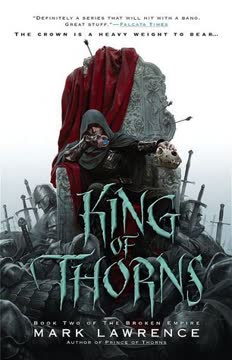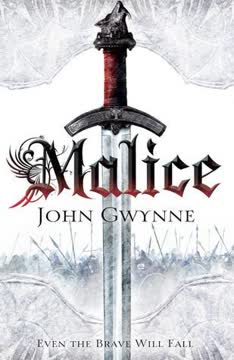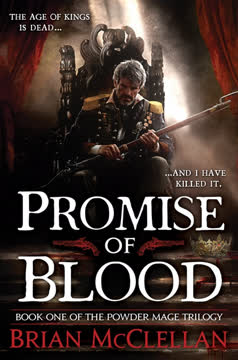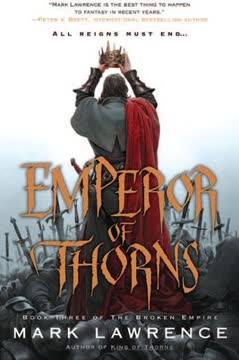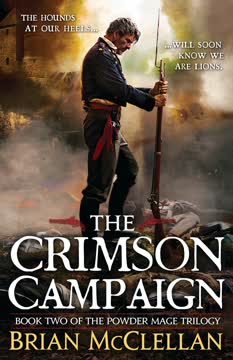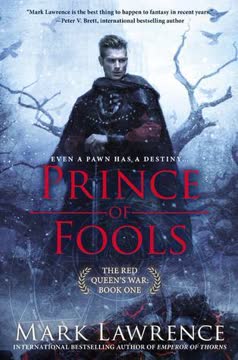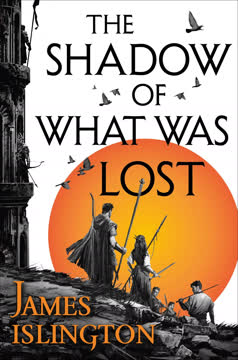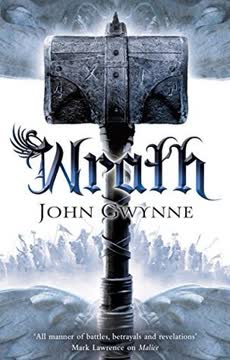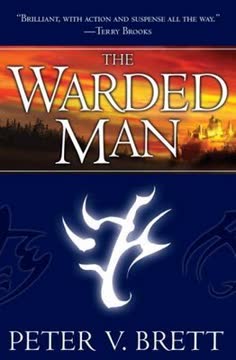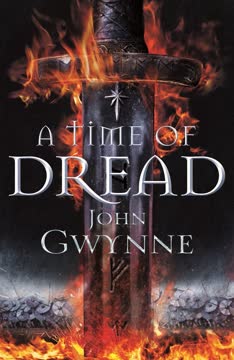Plot Summary
Arrival at the Northern Reaches
Vaelin Al Sorna and his sister Alornis arrive at the Northern Reaches, a place of both opportunity and danger. Vaelin, now the Tower Lord, is tasked with governing this remote region, a role given by King Malcius. The Northern Reaches, with its imposing tower and bustling port, present a complex landscape of soldiers and locals, hinting at the challenges Vaelin will face. As he settles into his new home, Vaelin reflects on the burdens of leadership and the secrets he must keep, including the mysterious power of his blood-song.
A Sister's Anger and Secrets
Alornis is upset with Vaelin for not searching for Reva, who left them abruptly. Vaelin, burdened by his own secrets and the weight of his past, decides to share his full story with Alornis. He reveals the truth about his blood-song, his past battles, and the complex web of lies and truths that have shaped his life. Alornis listens, her anger slowly giving way to understanding, though the revelations leave her with more questions about trust and the future.
The King's Command and Vaelin's Duty
Vaelin reflects on his meeting with King Malcius, who has tasked him with governing the Northern Reaches. The King, wary of plots and conspiracies, sees Vaelin as both a valuable ally and a potential threat. Vaelin's acceptance of the role is driven by a sense of duty and the guidance of his blood-song, which suggests that his path to finding his lost brother, Frentis, lies in the Northern Reaches. Despite the King's assurances, Vaelin remains cautious, aware of the political and personal challenges that await him.
A Mysterious Visitor's Warning
Vaelin receives a visit from a mysterious figure who brings a warning of impending danger. The visitor, shrouded in secrecy, hints at a larger conflict brewing beyond the borders of the Northern Reaches. Vaelin is left to ponder the implications of this warning, aware that his actions could have far-reaching consequences. The encounter reinforces his resolve to uncover the truth about his brother and the forces that threaten the Realm.
The Siege of Alltor Begins
The Volarian forces, led by General Tokrev, launch a fierce assault on the city of Alltor. The battle is marked by intense violence and strategic cunning, as the Volarians employ fire and overwhelming force to breach the city's defenses. Despite the chaos, the defenders of Alltor, driven by a sense of duty and desperation, mount a valiant resistance. The siege becomes a test of wills, with both sides suffering heavy losses. As the city burns, the true cost of war becomes painfully clear.
Vaelin's Arrival and New Allies
Vaelin Al Sorna arrives at the Northern Reaches, greeted by Lady Dahrena Al Myrna and Captain Adal Zenu. Despite a formal welcome, tensions simmer beneath the surface. Vaelin's new role as Tower Lord is fraught with challenges, including managing the North Guard and navigating local politics. His blood-song, a mysterious power, hints at both danger and opportunity. As he settles into his new home, Vaelin reflects on the burdens of leadership and the secrets he must keep.
The Bear People and Their Plight
Vaelin encounters the Bear People, a tribe fleeing from the Volarians. Led by a shaman, they are a shadow of their former strength, having lost their bears and many warriors. Vaelin offers them sanctuary, recognizing their plight as a reflection of his own struggles. The shaman shares visions of a vast Volarian army, hinting at a larger conflict that threatens the Realm. Vaelin's decision to help the Bear People marks a turning point in his leadership, as he balances compassion with the need for vigilance.
Lyrna's Diplomatic Mission
Princess Lyrna's journey to the Lonak lands results in a peace treaty, but not without cost. The Mahlessa, a powerful leader, reveals the existence of a greater threat, hinting at a dark force seeking to destroy their world. Lyrna's diplomatic skills are tested as she navigates the complexities of Lonak politics and the Mahlessa's cryptic warnings. Her return to the Realm is marked by a newfound resolve to protect her people, even as she questions the true nature of power and destiny.
Frentis's Agony and Liberation
After the assassination, Frentis is overwhelmed by pain, both physical and emotional. The knife wound inflicted by Lyrna triggers a transformation, freeing him from the woman's control. As he regains his senses, he finds himself amidst the burning palace, determined to stop the Volarian threat. Frentis's liberation is bittersweet, as he grapples with the guilt of his actions and the loss of his autonomy, but he resolves to fight back against the invaders.
Reva's Resolve and Leadership
In the city of Alltor, Reva Mustor emerges as a leader, rallying the defenders against the Volarian siege. Despite being outnumbered, her strategic mind and fierce determination inspire hope among the city's inhabitants. Reva's leadership is tested as she navigates the complexities of war, balancing the need for defense with the moral dilemmas of survival. Her actions become a beacon of resistance, embodying the spirit of defiance against the invaders.
Lyrna's Captivity and Escape
Captured by the Volarians, Lyrna endures the horrors of slavery, her royal status unknown to her captors. Despite her injuries, she remains resilient, forming alliances with fellow captives and plotting her escape. Her intelligence and cunning become her greatest weapons, as she manipulates her captors and seizes an opportunity to flee. Lyrna's journey is one of survival and vengeance, as she vows to reclaim her kingdom and avenge her family's death.
A Queen's Return and Betrayal
Lyrna, presumed dead, returns to the Meldenean Isles, where her true identity as the Queen of the Unified Realm is revealed. Her presence galvanizes the Meldeneans, who pledge their support against the Volarians. However, her return is not without danger, as she narrowly escapes an assassination attempt orchestrated by traitors within her ranks. This betrayal underscores the precariousness of her position and the challenges she faces in reclaiming her throne.
The Siege's End and New Beginnings
Vaelin leads a daring charge against the Volarian forces besieging Alltor, his blood-song guiding him through the chaos. The arrival of the Meldenean fleet, led by Lyrna, turns the tide, and the Volarians are defeated. The victory is bittersweet, as Vaelin is left weakened by the exertion of his powers, and the city lies in ruins. Yet, the end of the siege marks a new beginning for the Realm, as old alliances are reforged and new ones are formed.
A New Threat and Old Allies
Despite the victory at Alltor, the Volarian threat looms large, with plans for a renewed invasion. Lyrna and Vaelin must navigate the complex political landscape to unite the Realm against this common enemy. Old allies, such as the Meldeneans and the Seordah, are called upon, while new alliances are sought. The chapter sets the stage for the next phase of the conflict, as the characters prepare for the battles to come.
Characters
Vaelin Al Sorna
Vaelin is a complex figure, burdened by his past and the weight of his blood-song, a mysterious power that guides him. As Tower Lord of the Northern Reaches, he must navigate political intrigue and personal challenges while seeking answers about his lost brother, Frentis. Vaelin's journey is marked by a struggle to reconcile his duty with his desire for truth and redemption.
Lyrna Al Nieren
Lyrna returns to the Realm with a renewed sense of purpose, determined to reclaim her throne and unite her people against the Volarian threat. Her journey is marked by resilience and cunning, as she navigates the treacherous waters of politics and war. Lyrna's character is defined by her strength and intelligence, as she seeks to restore her kingdom and secure its future.
Reva Mustor
Reva emerges as a leader during the siege of Alltor, her courage and strategic mind inspiring those around her. She is a symbol of resistance against the Volarian invaders, embodying the spirit of defiance and hope. Reva's journey is one of growth and self-discovery, as she navigates the complexities of leadership and the moral dilemmas of war.
Frentis
Frentis is a complex character, torn between his past actions and his desire for redemption. Once a captive, he is now free but burdened by guilt. His journey is one of self-discovery, as he seeks to atone for his sins and fight against the Volarian invaders. Frentis's internal struggle is mirrored by the external conflict, as he battles both his own demons and the enemies of the realm.
General Tokrev
General Tokrev is a cunning and ambitious leader, orchestrating the Volarian invasion with strategic precision. His actions are driven by a desire for glory and power, but his methods reveal a darker side. Tokrev's character is defined by his ruthlessness and his willingness to sacrifice anything and anyone to achieve his goals.
Fornella
Fornella is the wife of General Tokrev, a woman of intelligence and subtlety. Her role in the Volarian campaign is marked by a keen understanding of politics and human nature. Fornella's interactions with Verniers and her husband reveal a depth of character that suggests hidden motives and ambitions.
Verniers Alishe Someren
Verniers is an Alpiran scholar captured by the Volarians and forced to document their campaign. His perspective offers insight into the brutality of war and the complexities of human nature. Verniers's journey is one of survival and adaptation, as he navigates the dangerous world of his captors.
Lady Dahrena Al Myrna
Dahrena is a key figure in the Northern Reaches, possessing the ability to spirit walk. Her gift provides valuable intelligence, but also carries a heavy price. Dahrena's relationship with Vaelin is one of mutual respect and shared purpose, as they work together to protect the Realm.
Nortah Al Sendahl
Nortah is a former brother of the Sixth Order, now leading a community of gifted exiles at Nehrin's Point. His leadership is marked by compassion and pragmatism, as he navigates the challenges of life in the Reaches. Nortah's relationship with Vaelin is one of deep friendship and shared history.
Brother Sollis
Brother Sollis is a veteran of the Sixth Order, tasked with protecting Princess Lyrna on her mission. His experience and dedication make him a formidable ally, but his past and personal beliefs add complexity to his character. Sollis's journey is one of duty and loyalty, as he navigates the challenges of his role.
Plot Devices
Blood-Song
The blood-song is a unique ability possessed by Vaelin, allowing him to sense danger and gain insight into the thoughts and intentions of others. It serves as both a guide and a burden, influencing his decisions and actions. The blood-song's role in the narrative is central to Vaelin's character development and the unfolding of the plot.
The Volarian Invasion
The Volarian invasion is a central plot device, driving the narrative and shaping the characters' actions. The Volarians represent a powerful and dangerous enemy, their ambitions threatening the stability of the Realm. The invasion serves as a backdrop for the exploration of themes such as duty, sacrifice, and the human cost of war. The Volarians' strategic cunning and ruthless methods highlight the brutality of conflict and the challenges faced by those who resist.
The Siege of Alltor
The siege of Alltor is a pivotal event in the narrative, showcasing the bravery and determination of the defenders against the Volarian invaders. It serves as a backdrop for the exploration of themes such as courage, leadership, and the human cost of conflict. The siege's impact on the characters and the world around them is profound, shaping the course of the story.
The Prophecy
The prophecy of the Darkblade suggests a figure of immense power and danger, yet also a potential savior. It adds a layer of mysticism and foreboding to the narrative, influencing the actions and motivations of the characters. The prophecy explores themes of destiny, power, and the nature of good and evil.
The Meldenean Alliance
The alliance with the Meldeneans is a crucial plot device, providing the Realm with much-needed support against the Volarian threat. The partnership highlights themes of unity, trust, and the complexities of political alliances. The Meldenean alliance plays a significant role in the unfolding events, shaping the characters' actions and the course of the war.
Analysis
"Tower Lord" by Anthony Ryan delves into the complexities of leadership, the burdens of power, and the quest for redemption. Through the intertwined narratives of Vaelin, Lyrna, Reva, and Frentis, the novel explores themes of duty, sacrifice, and the human cost of war. The characters' journeys are marked by personal growth and self-discovery, as they navigate the challenges of their roles and the moral dilemmas they face. The narrative is enriched by the presence of mystical elements, such as the blood-song and prophecy, which add depth and intrigue to the story. Ultimately, "Tower Lord" is a tale of resilience and hope, as the characters strive to protect their world and forge a better future amidst the chaos of conflict.
Last updated:
FAQ
Synopsis & Basic Details
What is Tower Lord about?
- A Realm Invaded: Tower Lord plunges the Unified Realm into chaos as the Volarian invasion launches a brutal invasion, spearheaded by cunning generals and dark, ancient powers. The narrative follows multiple protagonists—Vaelin Al Sorna, Princess Lyrna Al Nieren, Reva Mustor, and Frentis—as they navigate the war, each facing personal trials and moral dilemmas.
- Intertwined Destinies: The story weaves together disparate plotlines: Vaelin's reluctant leadership in the Northern Reaches, Lyrna's perilous diplomatic mission to the Lonak, Reva's fierce defense of Alltor, and Frentis's harrowing journey as a captive assassin. Their individual struggles and evolving powers are set against the backdrop of a collapsing kingdom.
- Survival and Revelation: Beyond the immediate conflict, the book delves into deeper mysteries surrounding ancient gifts, prophecies, and the true nature of the invading forces. Characters are forced to confront long-held beliefs, forge unexpected alliances, and make impossible choices to survive and protect what remains of their world.
Why should I read Tower Lord?
- Deep Character Evolution: Readers should delve into Tower Lord for its profound exploration of character arcs, particularly Vaelin's struggle with his "blood-song" and leadership, Lyrna's transformation from sheltered princess to hardened queen, and Frentis's harrowing journey of liberation and vengeance. The novel excels at showing how extreme circumstances forge and break individuals.
- Intricate World-Building: Anthony Ryan expands the rich tapestry of his world, introducing new cultures like the Eorhil and Lonak, and delving deeper into the Volarian Empire's sinister machinations. The detailed descriptions of diverse landscapes, from the frozen Northern Reaches to the humid Meldenean Isles, immerse the reader in a vibrant, yet brutal, fantasy setting.
- Moral Ambiguity Explored: The book consistently challenges conventional notions of good and evil, forcing characters and readers alike to question motivations and consequences. Actions deemed heroic by some are seen as monstrous by others, prompting reflection on the true cost of war and the blurred lines of morality. This psychological depth makes Tower Lord a compelling read.
What is the background of Tower Lord?
- Post-War Political Instability: Tower Lord is set roughly five years after the events of Blood Song, with King Malcius Al Nieren struggling to maintain control over a Unified Realm still reeling from Janus's expansionist wars and the devastating Alpiran conflict. The Realm is internally fractured by religious tensions (Faith vs. Deniers) and political infighting, making it vulnerable to external threats.
- The Volarian Imperial Threat: The primary external conflict is the calculated and ruthless invasion by the Volarian Empire, a technologically advanced and militarily disciplined power. Their expansionist goals are driven by a hidden, ancient entity known as the "Ally," which seeks to destroy the Realm for reasons tied to its own mysterious origins and hunger.
- Ancient Gifts and Prophecies: The world is subtly infused with "gifts" – innate magical abilities like Vaelin's blood-song, Dahrena's spirit-walking, and Fermin's beast-charming. These powers are often tied to ancient prophecies and hidden histories, suggesting a deeper, cosmic struggle at play that predates the current political conflicts. The existence of these gifts, and the fear/worship they inspire, shapes cultural interactions and personal destinies.
What are the most memorable quotes in Tower Lord?
- "Judge a nation best by its allies.": This quote, spoken by Fornella Av Entril Av Tokrev (Verniers's mistress), encapsulates the cynical and pragmatic worldview of the Volarian elite, highlighting their strategic approach to power and conquest. It also subtly foreshadows the complex and often morally compromised alliances formed throughout the book.
- "All victory is an illusion.": Attributed to King Janus Al Nieren by Alucius Al Hestian, this profound statement reflects the grim reality of war and power. It suggests that even apparent triumphs come at a hidden cost, leaving behind ruin and moral compromise, a theme deeply explored through the experiences of Vaelin, Lyrna, and Frentis.
- "Cruelty is in all of us. But they made it a virtue.": Frentis's stark observation about the Volarians, made to Illian, cuts to the core of the novel's exploration of human nature and the dehumanizing effects of systemic oppression. It highlights the philosophical difference between innate human flaws and the deliberate cultivation of malice.
What writing style, narrative choices, and literary techniques does Anthony Ryan use?
- Multi-Perspective Narrative: Ryan employs a shifting third-person limited perspective, primarily focusing on Vaelin, Lyrna, Frentis, and Reva. This allows for a comprehensive view of the unfolding invasion from various angles—military, political, personal, and even spiritual—enriching the reader's understanding of the conflict's scope and impact.
- Psychological Realism and Internal Monologue: The prose frequently delves into the characters' internal thoughts, fears, and moral struggles, particularly evident in Vaelin's battles with his blood-song and Frentis's tormented reflections on his forced actions. This emphasis on psychological depth grounds the fantastical elements in relatable human experience.
- Foreshadowing and Thematic Echoes: Ryan masterfully uses subtle foreshadowing, often through cryptic prophecies, recurring symbols (like the wolf or the burning), and seemingly minor details that gain significance later. This creates a sense of impending doom and intricate design, rewarding attentive readers with a deeper appreciation of the narrative's layered complexity.
Hidden Details & Subtle Connections
What are some minor details that add significant meaning?
- Fornella's Scorn for Reklar: Verniers's early observation that Fornella "doesn't respect this man" (Reklar Tokrev) despite being his wife, and her subtle barbs, immediately establishes a complex power dynamic within the Volarian command. This foreshadows her eventual betrayal and reveals her deeper, ancient motivations beyond mere spousal loyalty, hinting at her true age and connection to the "Ally."
- The "Sun and Moon" Ring: The gold ring found on the outlaw Kella, described as having an engraving of "the sun and the moon," is later identified by Vaelin as a Denier symbol. This seemingly minor detail subtly connects the seemingly random outlaw attack to the broader religious conflicts within the Realm and hints at the Deniers' hidden networks and beliefs, which become more prominent later in the series.
- Warrior's Bluff Rules: The inclusion of the detailed rules for "Warrior's Bluff" in the appendix, a card game Sentes Mustor mentions, is more than just world-building. It subtly foreshadows Sentes's strategic mindset and his "all-in" gamble in defending Alltor, implying his belief in holding a "Warrior's Bluff" hand against overwhelming odds, even if it means sacrificing everything.
What are some subtle foreshadowing and callbacks?
- Frentis's Scars and Fornella: The immediate recognition and mirroring of Frentis's whirling scars on Fornella's body subtly foreshadows their shared connection to the "Ally" and the nature of the binding power. This visual callback hints at a deeper, more ancient origin for their abilities and their shared torment, revealing that Fornella is not merely a human strategist but a vessel for something far older.
- The Wolf's Recurring Presence: The wolf that saves Vaelin in Blood Song and later appears to Dahrena as a child, reappears to Vaelin in the Great Northern Forest. Its presence consistently signals protection and a deeper connection to the ancient magic of the land, subtly foreshadowing its role in Vaelin's ultimate "rebirth" and the nature of his lost blood-song.
- Reva's Hair and Alornis's Art: Reva's initial refusal to cut her hair, despite her self-proclaimed "sluttish" appearance, is a subtle callback to Alornis's later admiration for its beauty and her desire to draw it. This seemingly trivial detail highlights Reva's subconscious yearning for acceptance and connection, contrasting with her ingrained dogma and foreshadowing her eventual emotional vulnerability and shift in identity.
What are some unexpected character connections?
- Harlick and Artis Al Sendahl: The revelation that Brother Harlick, the cynical Seventh Order scholar, conspired with Artis Al Sendahl (Nortah's father) to assassinate Vaelin is a shocking and unexpected connection. This deepens the moral ambiguity of the Order and highlights the lengths some would go to "prevent" prophecy, directly linking Vaelin's past trauma to Nortah's family history.
- Sentes Mustor and Reva's Mother: The unexpected familial bond between Sentes Mustor and Reva, and his detailed knowledge of her mother, reveals a hidden history of love and loss that directly contradicts the priest's narrative of Reva's "misbegotten life." This connection provides Reva with a genuine family and a new perspective on her past, challenging her ingrained beliefs.
- The Shield of the Isles and Vaelin's Past: Atheran Ell-Nestra's deep-seated resentment towards Vaelin, stemming from his "defeat" in Blood Song, reveals an unexpected psychological impact of Vaelin's actions on a seemingly minor character. This personal vendetta adds a layer of complexity to the Meldenean alliance, showing that even allies carry hidden grudges.
Who are the most significant supporting characters?
- Verniers Alishe Someren (The Chronicler): Beyond his role as a captive observer, Verniers serves as a crucial narrative lens, offering a detached yet insightful commentary on the Volarian invasion and the characters involved. His internal struggles with fear, his keen observations of power dynamics (especially Fornella's true nature), and his reluctant admiration for Vaelin provide a unique, often cynical, perspective on the unfolding events.
- Master Grealin (Aspect of the Seventh Order): Initially appearing as a minor Order figure, Grealin is revealed to be a powerful gifted individual and a hidden Aspect of the Seventh Order. His ability to "spirit walk" into the memories of the dead, his profound weariness with prophecy, and his eventual self-sacrifice to save Frentis and the others, make him a pivotal, albeit tragic, figure who embodies the heavy cost of ancient powers.
- Lady Veliss (Honoured Counsel to Alltor): More than just Sentes Mustor's pragmatic advisor, Veliss is a complex character whose past as a "whore" in Varinshold contrasts sharply with her fierce loyalty and strategic brilliance in defending Alltor. Her evolving, intimate relationship with Reva provides a powerful emotional anchor for Reva's journey, challenging rigid dogma with genuine human connection and love.
Psychological, Emotional, & Relational Analysis
What are some unspoken motivations of the characters?
- Fornella's Weariness and Desire for "Love": Fornella's true motivation, beyond serving the "Ally," is a profound weariness with her eternal existence and the endless cycle of manipulation and cruelty. Her "love" for Frentis, though twisted and abusive, is an unspoken attempt to find genuine connection or distraction from her cursed immortality, a desperate yearning for something real amidst her monstrous servitude.
- Sentes Mustor's Quest for Legacy: Sentes's seemingly drunken and cynical demeanor masks a deep, unspoken desire to leave a meaningful legacy, particularly in contrast to his "mad brother" Hentes. His calculated manipulation of Reva and his self-sacrificing defense of Alltor are driven by a profound need to prove his worth and ensure his fief's survival, even if it means a "Warrior's Bluff" with his own life.
- Vaelin's Search for Absolution: While Vaelin explicitly states his desire to find Frentis, an unspoken motivation is his subconscious search for a way to reconcile his past actions and the "cost" of his blood-song. His willingness to embrace new alliances and protect the vulnerable, even at great personal cost, hints at a deeper need for redemption and a return to a sense of moral purity.
What psychological complexities do the characters exhibit?
- Frentis's Shattered Agency: Frentis's psychological complexity lies in his struggle with agency under the "binding" of his scars. He is forced to commit horrific acts, leading to profound guilt and self-loathing, yet his eventual liberation is triggered by Lyrna's knife, suggesting that true freedom can only be found through extreme pain and the breaking of external control. His internal battle between obedience and rebellion is central to his character.
- Lyrna's Traumatic Transformation: Lyrna's experience of being burned and enslaved, coupled with witnessing her family's brutal murder, shatters her privileged worldview. Her subsequent physical scarring and emotional hardening reveal a complex psychological shift from a detached intellectual to a ruthless, pragmatic queen. Her ability to compartmentalize trauma and focus on survival highlights a formidable, yet chilling, resilience.
- Reva's Dogmatic Deconstruction: Reva's journey is a psychological deconstruction of her ingrained fanaticism. Her absolute belief in the World Father and her father's "holy mission" is systematically dismantled by Vaelin's truths and her own experiences of love and betrayal. This internal conflict between rigid dogma and emerging empathy creates a complex portrait of a young woman grappling with the collapse of her entire belief system.
What are the major emotional turning points?
- Reva's Confrontation with Vaelin: The moment Vaelin reveals the truth about her father and the priest's manipulation ("I lied, Reva"), is a devastating emotional turning point for Reva. It shatters her foundational beliefs, leading to profound grief and confusion, but also opens the door for her to forge her own path and find genuine connections beyond dogma.
- Frentis's Liberation from the Binding: When Lyrna's knife strikes Frentis, triggering the "nova of all-consuming pain" that breaks the "Ally's" binding, it marks a pivotal emotional release. The immediate surge of freedom, despite the physical agony and the surrounding carnage, is a moment of profound psychological liberation, allowing him to reclaim his will and identity.
- Lyrna's Dream of King Janus: Lyrna's dream where she confronts her deceased father, King Janus, and accepts her role as queen of a "land of ruin and death," is a crucial emotional turning point. It signifies her acceptance of her inherited burden, her reconciliation with his complex legacy, and her resolve to rebuild the Realm on her own terms, shedding the last vestiges of her former self.
How do relationship dynamics evolve?
- Vaelin and Alornis: From Duty to Sibling Love: Their relationship evolves from Vaelin's sense of duty as a distant brother to a deep, trusting sibling bond. Vaelin's decision to share his full, unvarnished history with Alornis, and her unwavering support despite the shocking revelations, solidifies their connection, making her one of the few people he truly trusts.
- Reva and Sentes Mustor: From Inherited Hatred to Familial Affection: Reva's initial mission to kill her "heretic" uncle transforms into a complex familial bond. Sentes's acceptance, his genuine affection, and his calculated self-sacrifice for Alltor lead Reva to shed her inherited hatred and embrace him as her only living family, culminating in a poignant moment of mutual love and understanding.
- Lyrna and Davoka: From Wary Alliance to Sisterhood: Their dynamic shifts from a pragmatic diplomatic alliance to a profound sisterhood forged through shared peril and mutual respect. Davoka's fierce loyalty and Lyrna's growing empathy for the Lonak woman transcend cultural barriers, culminating in Lyrna's declaration, "Your sister is my sister too, and so I will be yours," signifying a deep emotional connection.
Interpretation & Debate
Which parts of the story remain ambiguous or open-ended?
- The "Ally's" True Nature and Ultimate Goal: While the "Ally" is revealed as an ancient, malevolent entity that manipulates the Volarians, its precise origin, its full capabilities, and its ultimate objective beyond "destruction" and "hunger" remain largely ambiguous. The blind seer Nersus Sil Nin's cryptic warnings ("After you, there is no future") hint at a cosmic threat whose full scope is yet to be revealed.
- The Full Extent of the "Gifts" and Their Cost: The novel introduces various "gifts" (blood-song, spirit-walking, beast-charming, knowledge-transfer, healing touch) but leaves their precise mechanics, limitations, and the full "price" they exact largely open to interpretation. The nature of the "void" where souls go, and the entity that "twists" gifted souls, is hinted at but not fully explained, leaving room for future revelations.
- The Fate of Key Supporting Characters: While the main protagonists' immediate fates are clear, the long-term destinies of several significant supporting characters remain open-ended. For instance, the future of Nortah's gifted family, the role of the newly formed "Army of the North," and the ultimate impact of the Meldenean alliance on the broader conflict are left for future installments.
What are some debatable, controversial scenes or moments in Tower Lord?
- Frentis's Forced Murders and Moral Culpability: The scenes where Frentis is compelled by Fornella's binding to commit horrific acts, such as the murder of the magistrate's family or the torture of the hunter, are highly controversial. Readers might debate his moral culpability: is he a victim, a monster, or both? His internal torment and eventual liberation highlight the complex interplay between free will and external control.
- Lyrna's Calculated Sacrifices and Pragmatism: Lyrna's strategic decisions, such as using her own party as "bait" for the Sentar or her willingness to sacrifice the lives of her people in the Meldenean naval battle, can be seen as controversial. Her transformation into a ruthless queen, prioritizing the Realm's survival above individual lives, raises questions about the morality of leadership in wartime and whether the ends justify the means.
- The "Healing" of Frentis's Scars: The sudden and seemingly miraculous healing of Frentis's scars, triggered by Lyrna's knife and the old man's blood, is a debatable plot point. Some might question
Review Summary
Tower Lord received mixed reviews. Many praised the expanded scope and multiple POVs, finding the new characters engaging. However, some fans were disappointed by the shift away from Vaelin's singular perspective and felt the pacing was slower. The siege scenes and female characters were highlights for many readers. While some found it less addictive than Blood Song, others thought it surpassed the first book. Overall, most agreed it was a solid continuation of the series, though opinions varied on how it compared to its predecessor.
Raven's Shadow Series
Similar Books
Download PDF
Download EPUB
.epub digital book format is ideal for reading ebooks on phones, tablets, and e-readers.
